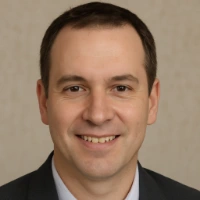In South Florida, the role of a General Care Paramedic (GCP) is both essential and rewarding. The demand for these healthcare professionals is on the rise, especially with the aging population. Becoming a GCP requires dedication and an immense passion for patient care. The path to this profession typically involves obtaining an Emergency Medical Technician (EMT) certification, followed by a Paramedic certification. Specializing as a GCP may involve additional training in geriatric care and cognitive disorders. Often, a bachelor’s degree in a related field can boost job prospects. Now, let’s delve deeper into the critical components of a GCP’s job.
Home Care: Bringing Medical Aid Home
GCPs provide healthcare directly in patients’ homes. Their aim is to ensure that patients receive quality care in a familiar environment. They cater to a range of health needs, from routine checks to emergency situations. The GCP’s knowledge in first aid, patient assessment, and emergency response is crucial here. They are often the first line of medical assistance and play a vital role in the continuity of care.
Independence: Solitary Caregivers
GCPs often work independently, responding to calls and treating patients without immediate supervision. This aspect of their job demands critical thinking skills and the ability to make swift, informed decisions. Their training prepares them to handle a variety of medical situations and deliver optimal care independently. They manage their workload, keep track of patient appointments, and maintain the necessary supplies and equipment for their work.
Cognitive Care: Caring for the Mind
GCPs frequently work with patients suffering from cognitive impairments. Conditions like dementia, Alzheimer’s, or brain injuries require special care and understanding. GCPs are trained to handle these sensitive situations. They take the time to communicate clearly with these patients, use techniques to jog their memory, and ensure their safety during treatment. Patience and compassion are essential traits for this aspect of their work.
Elder Care: Guardians of the Aged
Working with the elderly is a significant part of a GCP’s job. They provide routine care to elderly patients who may suffer from various health conditions. Regular check-ups, medication management, and monitoring of vital signs are some of their responsibilities. They also assess the patient’s living conditions, looking for any potential hazards and ensuring the environment is safe and comfortable for the patient.
Clinical Work: On-site Care Providers
Some GCPs work in clinics, serving patients who come in with non-emergency health concerns. They can perform routine medical procedures, administer vaccinations, and assist doctors with examinations. Their extensive training in various medical procedures equips them to provide a wide array of healthcare services. Good interpersonal skills are key in this setting as they frequently interact with patients and other healthcare professionals.
Private Sector: Customized Healthcare
Working for private sector providers is another opportunity for GCPs. They may be hired by individuals or families to provide personalized care. They could also be employed by companies that offer general care paramedic services. The focus here is on delivering patient-centered care tailored to the individual’s specific health needs. Professionalism and adaptability are paramount in this role.
Patient Education: Spreading Health Awareness
GCP’s play a significant role in educating patients and their families. They provide information on managing chronic conditions, taking medications correctly, and making lifestyle changes. Clear communication is crucial here as they need to convey complex medical information in a way that’s easy to understand. By providing this education, they empower patients to take an active role in their healthcare.
Chronic Disease Management: Navigating Long-term Care
GCPs often work with patients suffering from chronic diseases. They monitor their condition, manage medications, and adjust treatments as necessary. They collaborate with physicians to ensure the care plan is being followed and updated as required. The goal is to manage symptoms, improve the quality of life, and prevent hospitalizations.
Collaboration with Healthcare Teams: The United Front
Working closely with other healthcare professionals is an essential aspect of a GCP’s job. They liaise with doctors, nurses, and other healthcare providers to deliver comprehensive patient care. Effective communication and teamwork skills are vital as they share patient updates, discuss care plans, and ensure seamless coordination in patient care.
Record Keeping: Documenting the Journey
Accurate documentation is a fundamental part of a GCP’s role. They maintain detailed records of patient conditions, treatments administered, and progress made. These records ensure continuity of care and facilitate effective communication among all parties involved. Good organization and attention to detail are crucial for this task.
In conclusion, a career as a General Care Paramedic in South Florida is both challenging and fulfilling. This job is for those who have a genuine desire to help people, especially those with chronic conditions or cognitive impairments. If you’re ready to embrace this career, learn more about how to become a General Care Paramedic. It’s a journey that combines medical expertise with the human touch, shaping the lives of countless individuals along the way.

Jeromy VanderMeulen is a seasoned fire service leader with over two decades of experience in emergency response, training, and public safety management. He currently serves as Battalion Chief at the Lehigh Acres Fire Control & Rescue District and is CEO of the Ricky Rescue Training Academy, a premier provider of online and blended EMT and firefighter certification programs in Florida.
Jeromy holds multiple degrees from Edison State College and the Community College of the Air Force, and is pursuing his MBA at Barry University. He maintains top-tier certifications, including Fire Officer IV, Fire Instructor III, and Fire Inspector II, and has served as a subject matter expert for a court case. He is a member or the Florida Fire Chiefs Association.
Jeromy also contributes to state-level fire safety regulation and serves on several hiring and promotional boards.

